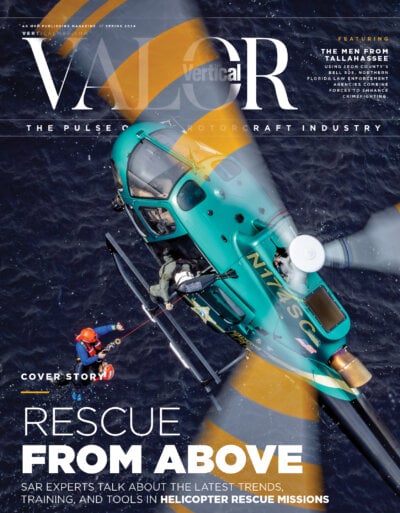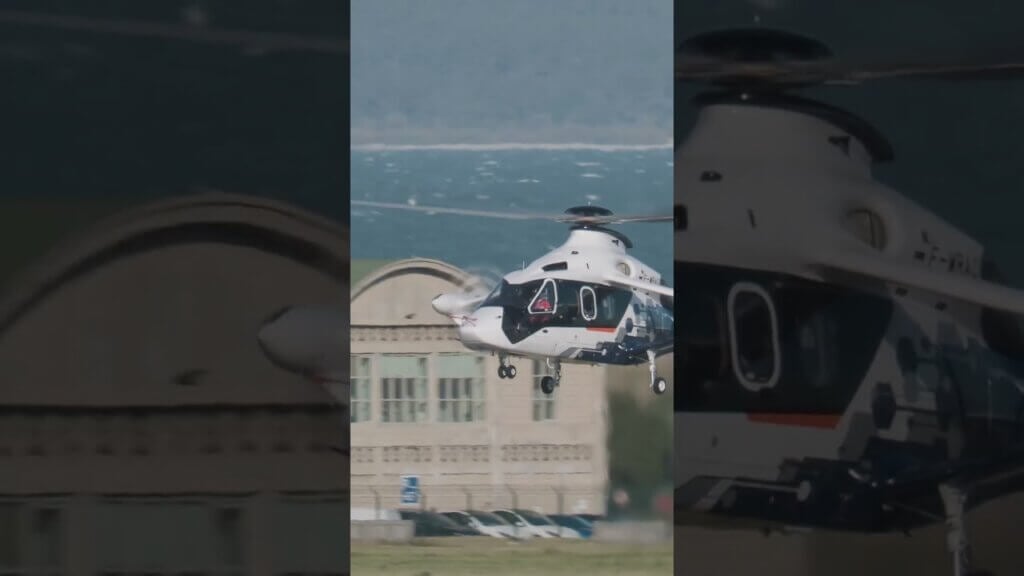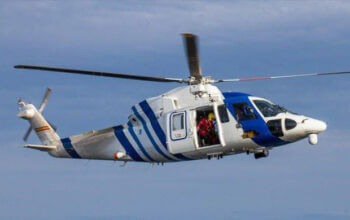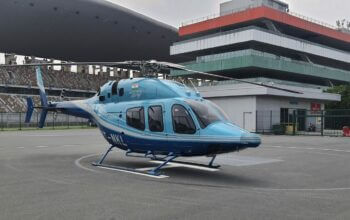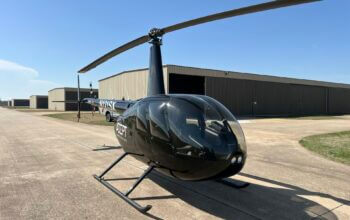Uber Elevate has selected GE Aviation to develop requirements for a flight data monitoring (FDM) program to support Uber Air, the eVTOL ridesharing service it aims to launch by 2023.

FDM is the process of analyzing and reviewing routinely recorded flight data; for example, airspeed and altitude profiles. This information can be used to identify deviations from standard operating procedures that could indicate a need for safety interventions such as better pilot training or changes to flight paths.
First introduced in the commercial airline industry over 20 years ago, FDM and associated flight operations quality assurance (FOQA) programs are integral to safety management systems (SMS), and have been widely credited with helping to reduce the sector’s accident rate.
FDM has been slower to catch on in the part 135 on-demand air carrier world, not least because the required equipment was for many years too bulky and expensive for smaller aircraft. However, the past decade has seen rapid advances in the technology, and compact FDM solutions are now widely available for light aircraft including helicopters. The U.S. National Transportation Safety Board has recommended that FDM and SMS be implemented by all carriers operating under 14 Code of Federal Regulations part 135 — the regulations that Uber expects will initially apply to Uber Air.
According to Uber Elevate head of aviation safety John Illson, a former captain for U.S. Airways with extensive safety experience in the part 121 commercial airline world, Uber Elevate is “voluntarily implementing a safety management system and developing voluntary programs that have yielded proven safety benefits for the aviation industry.” Illson previously told eVTOL.com that Uber would support a regulatory requirement for SMS in part 135 operations.
Such programs could be key to achieving the overall level of safety that Uber believes will be necessary for large-scale adoption of eVTOL air taxis. While most discussions of eVTOL safety to date have focused on the appropriate target level of safety (TLS) for the reliability of aircraft systems, Uber has advocated for a stronger focus on operational safety, pointing out that around 70 percent of part 135 fatal accidents can be attributed to operator error, versus only around 16 percent for airworthiness system failures.

“If you look at where these accidents are, in my mind, it really says where we need to be focused,” Uber Elevate chief scientist Mark Moore said in an Oct. 8 panel discussion for the Vertical Flight Society’s Forum 76. Moore argued against the TLS of 10-9 failures per flight hour that has been proposed by the European Union Aviation Safety Agency for passenger-carrying eVTOL air taxis, arguing that the resources it would take to achieve that would be better directed elsewhere.
“With this recognition that our certification agencies are constrained, that our developers are constrained to some point, the question begs to be asked: Where do you put your attention?” he said. “And in my opinion, these statistics clearly show that it’s in such technologies that can reduce that operator error.”
According to GE Aviation, its FDM and FOQA solutions have been adopted by hundreds of airlines and business jet operators around the world, with its patented analytics software used to identify safety events and measurements on thousands of flights every day. The company said its experience working with some of the world’s largest flight data benchmarking programs made its partnership with Uber Elevate a natural fit.
“This partnership will help expand our digital innovation as the travel industry continues to evolve,” stated Andrew Coleman, general manager of GE Aviation’s Digital Group, in a press release. “We’re able to bring our experience in digital across the travel ecosystem by helping travelers reach their destination safely and efficiently.”
Coleman told eVTOL.com that GE Aviation has existing hardware and software solutions in the commercial aviation fixed-wing and rotorcraft sectors, and is currently finishing development on systems with smaller and lighter footprints. “The hardware decision will be made by the OEMs and we’re not having those discussions with OEMs yet,” he said.




